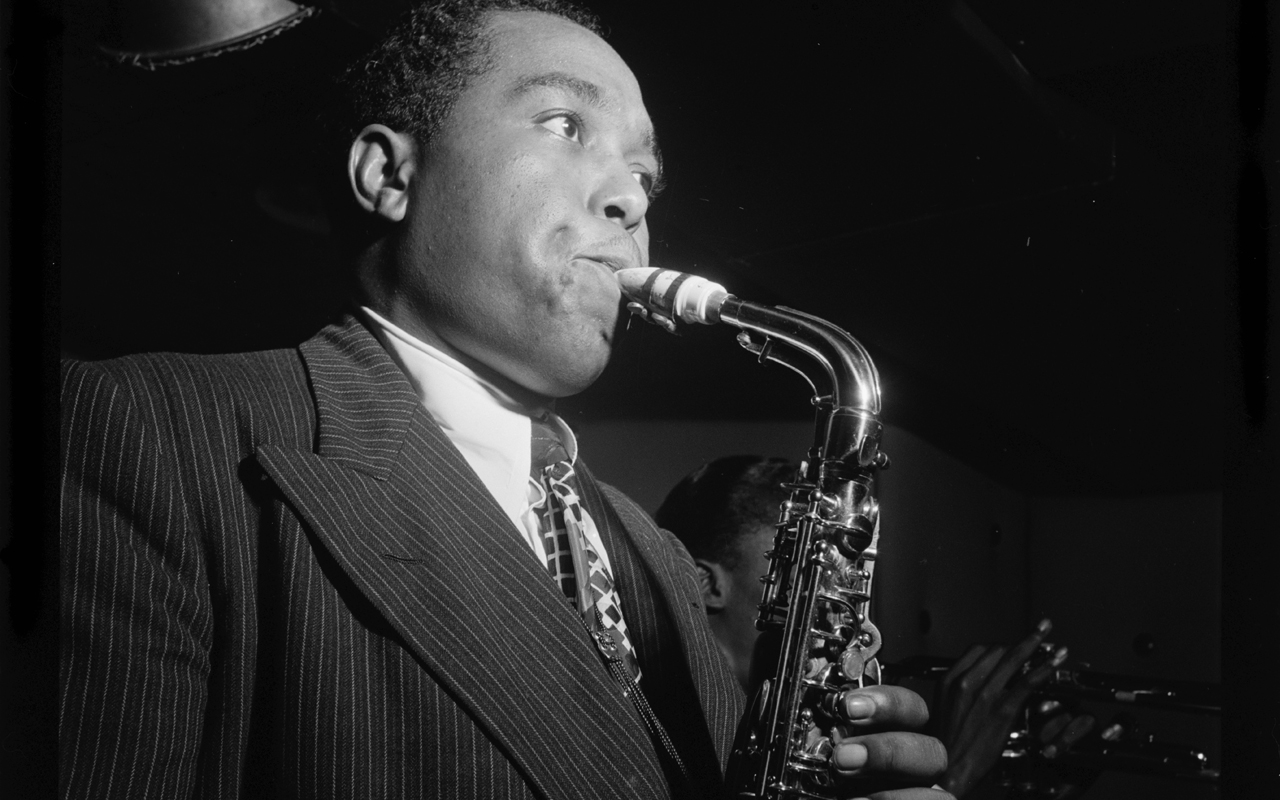
Charlie Parker photo by William Gottlieb.
Monday, February 24, 7:30pm
Royal Room
5000 Rainier Ave S
It’s hard to overestimate the importance of Charlie “Bird” Parker, the co-inventor of bebop whose extravagant skill as a composer and alto-saxophonist shaped the very soul of jazz to come. As Miles Davis once stated: “You can tell the history of jazz in four words: Louis Armstrong, Charlie Parker.”
One hundred years after his birth, the Seattle Opera presents Charlie Parker’s Yardbird, a one-act opera written by composer/saxophonist Daniel Schnyder and poet/playwright Bridgette Wimberly. The opera follows Kansas-born Parker, who, stuck in limbo after his death, returns to the famous New York club Birdland (named in his honor) to compose a final masterpiece.
On February 24th, presented in association with the Seattle Opera and KNKX, the Royal Room will prove that Bird lives through the next century with a night of tributes and original music.
The night will explore different facets of Parker’s life and work. Soprano Angela Brown, who plays Parker’s mother Addie in Yardbird, will bring the opera’s drama back to the club by performing a short spoken-word piece “Discography,” written by Wimberly, the opera’s librettist for vocals and small jazz ensemble.
Despite Parker’s tragic death in 1955 after a heroin overdose, he had already triumphed with his music. Besides his recorded work, often imitated but seldom duplicated, his compositions have since become classics, and will be featured by a quartet led by drummer D’Vonne Lewis (last year’s Golden Ear instrumentalist of the year), featuring Stuart MacDonald (sax), Tim Kennedy (piano), and Michael Glynn (bass).
The night will also feature a premiere of “188 Sullivan,” written by pianist/ composer Wayne Horvitz for Seattle Modern Orchestra (SMO), conducted by Julia Tai. The piece takes its inspiration from Parker’s brief encounter with another great New York modernist, the French composer Edgar Varèse.
Himself drawing deeply from the classical tradition, Parker was enamored of then-down-and-out Varèse, whose bombastic rhythm-centered compositions formed the beginnings of modern electronic music. According to legend, Parker followed the composer through Greenwich Village, begging the composer for lessons in composition. Though they ended up meeting at the composer’s apartment—188 Sullivan Street—Parker died in 1955 after Varèse left for Paris to begin his early work for orchestra and tape, Déserts.
Though Horvitz doubts the two musicians wouldn’t have gone further than mutual admiration if Bird had lived longer, he does point out thatVarèse later became involved in jam-sessions with musicians like Charles Mingus and Hal Overton.
“The cross-pollination of ideas and aesthetics is impossible to avoid, and we’d be poor human beings if we tried,” Horvitz explains of the affinities between the modes of classical and jazz music. Earle Brown, another composer of that era influenced by New York’s crossing currents, was featured by SMO in last fall’s Earshot Jazz Festival, in addition to George Lewis, Tyshawn Sorey, and Horvitz.
“James Falzone with be the featured improvising soloist, but the other musicians will be making contributions as well, improvising within certain parameters and within the constructs of ‘conduction.’” Horvitz said of the piece, which features himself (electronics), Falzone (clarinet), Bonnie Whiting (percussion), and Cristina Valdés (piano). Conduction refers to the conducting of an improvised ensemble, often with a different set of signals than standard classical conducting.
Conductor Julia Tai emphasizes improvisation as a characteristic of jazz that has returned into contemporary classical music. “My role as a conductor is to understand and shape the piece, while giving musicians enough space to come up with their own material,” she explains, reveling in the music of the moment. “It’s going to be really fun, and it’ll be different every time!
–Ian Gwin
Visit theroyalroomseattle.com for tickets and information.
Seattle Opera’s production of Charlie Parker’s Yardbird runs from February 22–March 7. Visit seattleopera.org for details.